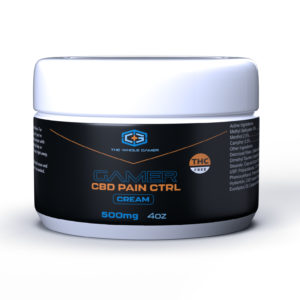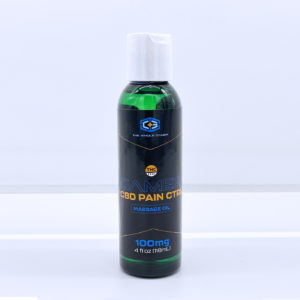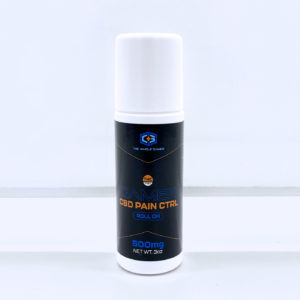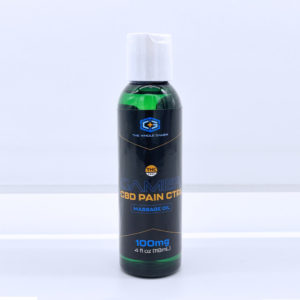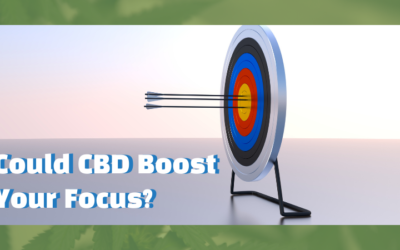After bursting onto the scene in 2018, CBD has only kept getting more popular. It’s gathered a grass-roots reputation for promoting health and wholeness — customers report that CBD has them feeling better, thinking better, and sleeping better than they have in years.
In this article, we’ll be taking a closer look at all these benefits…and much more. Here’s an outline of what you can expect to read about:
- What is CBD?
- How is CBD Different from THC?
- CBD vs. Stress
- CBD vs. Inflammation
- CBD vs. Chronic Pain
- CBD and Sleep: Why It Could Work
What is CBD?
To put it super simply, CBD is a plant compound. What’s a plant compound? It’s a compound that’s important to a plant’s life cycle and metabolic health, of course!
In the case of CBD, the plant in question is called hemp. And while hemp’s CBD content fulfills several important metabolic roles within the plant, it also fulfills several important roles within us humans.
CBD is also an acronym that stands for canna bi diol. Its full name denotes its chemical structure, but it’s also a little awkward to say, so CBD’s shorter name has stuck.
How is CBD Different from THC?
If “location, location, location” is the clarion call of real estate, “sourcing, sourcing, sourcing” might just settle the question of CBD quality. Why’s that? Because good hemp creates good CBD products, and CBD sourced from industrial hemp is fully legal in all 50 states.
Sourcing also highlights the main difference between CBD and THC, another well-known cannabinoid. While CBD is hemp’s most active ingredient, THC is marijuana’s most active ingredient.
Compared to ‘normal’ marijuana/cannabis, hemp contains lots of CBD and very little THC. Federal law specifies: industrial hemp must contain .3 % THC or less. That’s not very much!
This unique cannabinoid ratio of high CBD and low THC means that hemp’s CBD content can gently regulate the body without causing any weird side effects. In other words, CBD provides health benefits without the ‘high.’
CBD vs. Stress
Speaking of CBD’s health benefits, most of them actually stem from something very simple:
CBD’s ability to reduce stress. By helping various parts of your body communicate with each other, CBD may silence stress and promote full-body balance.
This might sound a little metaphysical, but it’s actually real science. CBD activates a system called the endocannabinoid system, and this system provides an ongoing checks-and-balances type effect to virtually every other physiological system and vital organ in your body. That means CBD may help your body operate efficiently — efficiently enough to stay above the equilibrium that is poor health and reduced immunity.
In short, CBD = improved endocannabinoid system function = reduced stress.
The implications of this concept are nearly endless. Pioneering endocrinologist Hans Selye found that non-specific stressors can manifest themselves in a wide variety of ways; stress can crush a person’s posture or wreck their circadian rhythm or steal the glow from their face. Conversely, reductions in stress can have different effects on different people.
Indeed, some people who take CBD find that they sleep better, while others notice no difference in their sleep but gain some much-needed mobility. Could CBD’s wide variety of health benefits be explained by this simple stress-reduction concept? We think so.
With this pattern in mind, let’s take a more specific look at some of CBD’s most common health benefits.
CBD vs. Inflammation
The human body is complex enough that nearly everything that happens within it is dependent on context.
A little bit of inflammation is a good thing, but chronic inflammation can begin to eat away at tissues and cause degeneration if left unchecked. Many factors can influence inflammation, and some of them are unexpected: even the foods we eat provide the building blocks for inflammatory molecules. Unfortunately, the modern western diet is full of both the omega-6 fats that fuel the creation of these molecules…and the allergenic proteins that send them off.
Hey, we get it: avoiding these problem foods can be tough. The good news is that CBD’s here to help! CBD may shift your inflammatory balance to a healthier place by reducing the rate at which interleukins and other inflammatory molecules are produced. It may even work with the endocannabinoid system to reduce the need for inflammatory reactions in the first place.
“It has been suggested that CBD may indirectly improve anti-inflammatory effects,” one study deduced. CBD may also act as an antioxidant, which makes sense given inflammation and oxidation often go hand in hand. Both these effects have all sorts of nice ‘downstream’ benefits…
CBD vs. Chronic Pain
Reduced pain is one of the biggest benefits many CBD users notice. Even super-stubborn chronic pain often fades with consistent CBD use. Key word being consistent. CBD can only reduce inflammation and pain if it’s taken consistently over time. You’ll likely need to take more CBD the higher your pain levels are.
But don’t feel hopeless if your pain has you feeling like you need relief right now. That’s what topical CBD is for! There’s some evidence that applying topical CBD can blunt your brain’s perception of pain almost instantly.
You know how hot peppers make your mouth feel like it’s burning, even though it not actually on fire? CBD works via the same TRPV1 sensory pathway in the opposite way, making your joints feel like they’re not inflamed — long before CBD’s actual anti-inflammatory benefits begin to kick in.
If you want to get the best of both worlds, the solution is simple: take CBD oil consistently each day and add a CBD topical into the routine if/when you really need it. And have hope. CBD for chronic pain can really work! Some doctors are even using it to wean their patients off conventional NSAIDs and opioids.
CBD and Sleep: Why It Could Work
Another favorite benefit of many of our new customers? Improved sleep.
Unlike conventional sleep aids, however, CBD doesn’t normally make you sleepy during the day. Instead, it may work with your body’s built-in circadian clock to make you feel tired when you want to — at night! One of America’s largest CBD case studies yet found that the compound might work for both sleep and anxiety.
If you’ve been depending on melatonin, alcohol, or other substances to help you unwind in the evening, consider switching over to CBD. It has considerably fewer side effects…and it might just work better anyways. Why take supplemental melatonin when your endocannabinoid system can help your body produce the melatonin it needs to produce, naturally? (That’s a rhetorical question, of course.)



